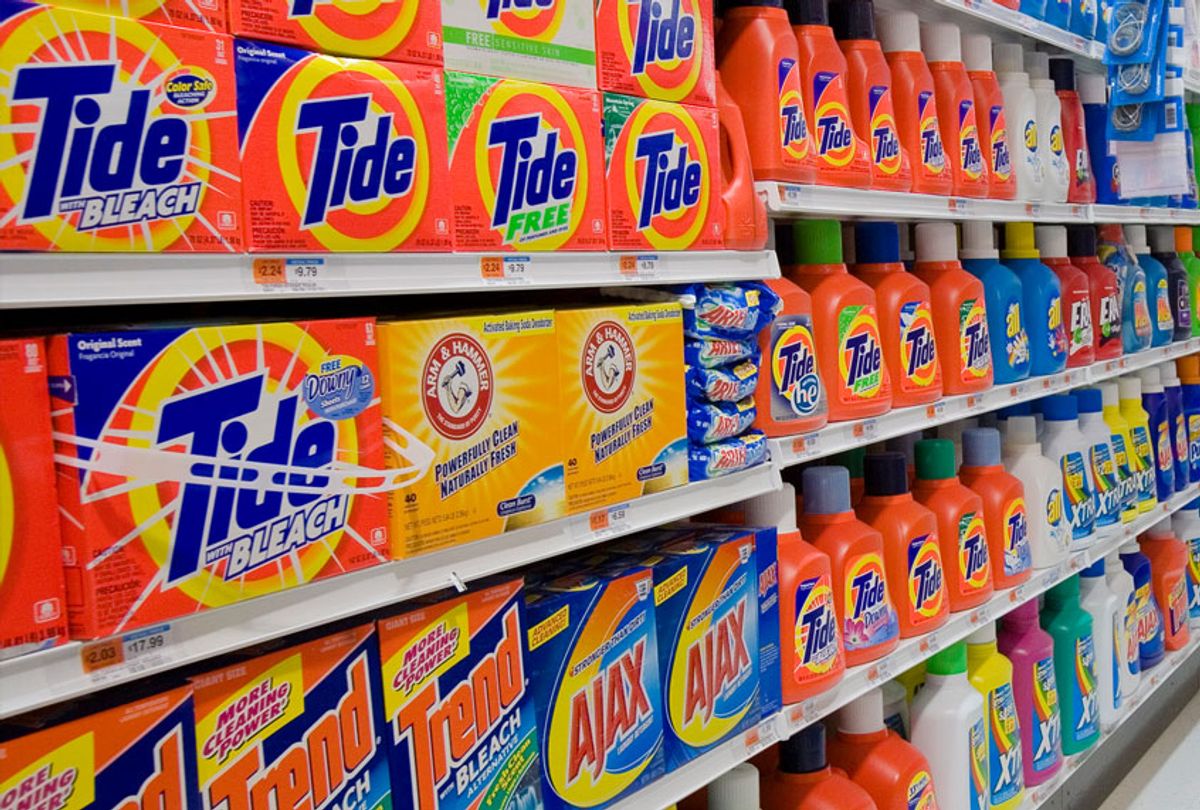A new report by the Centers for Disease Control (CDC) reveals that an increasing number of Americans are putting poisonous cleaning supplies into their bodies under the misguided belief that doing so will protect them from the coronavirus.
Such behavior recalls President Donald Trump's comment in late April that ingesting or injecting cleaning supplies might cure one of the coronavirus, despite no evidence or science supporting such actions.
The study found that, among respondents in an opt-in internet survey conducted in May 2020, nearly two out of five engaged in high-risk practices not recommended by the CDC or other reputable scientific groups in order to ward off the spread of the coronavirus. Nineteen percent applied bleach to food items like fruits and vegetables, 18 percent applied household cleaning and disinfectant products to their skin, 10 percent sprayed themselves with cleaning or disinfectant spray, 6 percent inhaled fumes from household cleaners or disinfectants and 4 percent drank or gargled diluted bleach solutions, soapy water and other cleaning and disinfectant solutions.
One out of four respondents reported a number of consequent health problems including 11 percent who experienced nose or sinus irritation, 8 percent who experienced skin irritation, 8 percent who experienced eye irritation, 8 percent who experienced dizziness, lightheadedness, or headache, 6 percent who experienced stomach issues or nausea and 6 percent who experienced breathing problems.
"These practices pose a risk of severe tissue damage and corrosive injury and should be strictly avoided," the CDC explained in its report. "Although adverse health effects reported by respondents could not be attributed to their engaging in high-risk practices, the association between these high-risk practices and reported adverse health effects indicates a need for public messaging regarding safe and effective cleaning and disinfection practices aimed at preventing SARS-CoV-2 transmission in households."
Indeed, President Donald Trump has aroused controversy during the coronavirus pandemic for making dangerous health recommendations — including some involving cleaning products — that he has claimed will help prevent infection. During a press conference in April about how bleach and rubbing alcohol can kill the virus on surfaces, Trump asked, "Is there a way we can do something like that, by injection inside or almost a cleaning? Because, you see, it gets in the lungs and it does a tremendous number on the lungs. So it would be interesting to check that."
He later elaborated during the press conference, "It wouldn't be through injection. We're talking about through almost a cleaning, sterilization of an area. Maybe it works, maybe it doesn't work. But it certainly has a big effect if it's on a stationary object."
It is unclear how long it will take for scientists to develop an effective medication for treating or preventing COVID-19, the disease that occurs in some patients after they are infected with the coronavirus. Speaking to Salon last month Dr. Eric Feigl-Ding, an epidemiologist and senior fellow at the Federation of American Scientists, said that "if you look at the history of HIV drugs, today we have a cocktail that works on a combination that can basically manage HIV to just a chronic disease and keep the virus in check. But the early trials of HIV were all kinda like modest. But then we built up like a repertoire, like a cocktail that together worked incredibly well."
He added, "But that takes time. This virus is so new. Normally trials take years or, if not, months and months to set up. We're racing against time here."
Meanwhile, over a hundred different government health agencies and pharmaceutical companies are busy at work developing a potential vaccine.



Shares